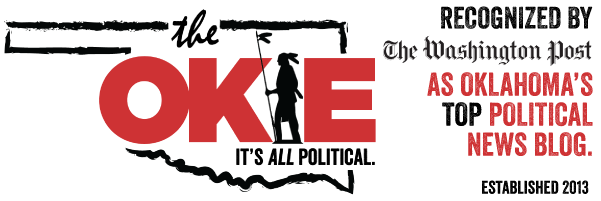Lucas OpEd: Keeping the EPA Honest
Keeping the EPA honest
By Rep. Frank Lucas (R-Okla.)
In western Oklahoma, we’re no strangers to regulatory overreach from the Environmental Protection Agency (EPA). Farmers, ranchers and small businesses are often surprised to find themselves the target of burdensome and downright inefficient regulations.
These regulations range from something as specific as farm fuel tank permitting requirements to vastly prohibitive restrictions on the electric plants that power our homes.
Government intrusion into America’s energy and agricultural sectors reverberates into our everyday lives in the form of higher food prices or monthly energy bills. Stagnant wages and underemployment have only exacerbated this problem for families trying to make ends meet. The science behind EPA regulations is as important as the money they siphon from our economy. Science and data are invaluable tools in helping us navigate complex policy issues, and when the economic cost of these regulations reaches into tens of millions of dollars, we need to get it right.
The Science Advisory Board (SAB) is a panel of independent experts that reviews the science behind EPA rules which potentially impact the lives of millions of Americans. The heavy costs of these regulations should warrant some degree of public oversight and an assurance that this board’s findings are free from bias – not provided by a set of handpicked advisers.
Shortcomings with the process have come up recently, including limited public participation, interference with expert advice and possible conflicts of interest. These are alarming signs for an organization whose reputation stems from impartiality.
This week the House will vote on a bill I introduced to address these issues and ensure the science guiding EPA’s regulatory policy is objective, open and balanced.
The EPA Science Advisory Board Reform Act prevents the agency from using this advisory board to simply sign off on their regulatory agenda by empowering the board to listen to outside expertise. State and private experts sometimes have the greatest knowledge on issues. However, too often they are locked out of this process entirely. This should be reason enough to implement transparency measures to this board.
In fact, during most SAB meetings participation from the public is limited, if not entirely absent, and there is essentially no avenue for interested parties to comment on the scope of the board’s reviews. Some of the members who serve on the panel have even made public statements advocating specific policy positions on the same issues they are tasked with providing unbiased scientific advice.
Partisan inclinations should play no role in EPA’s science. And actively shutting out certain unpopular viewpoints is a disservice to scientific integrity and the public. My proposal requires members to disclose potential conflicts of interest and makes them available for public review.
For an agency that consistently shrugs off Congressional oversight efforts, the significance of SAB’s role cannot be overstated. Opposition to our proposal’s goal to shine light on the board’s review process is merely an excuse to defend the advisory board’s obstructionist and partisan status quo.
This is a good-government bill, one that can help restore credibility and trust in a federal agency that has lost much of it. Disagreements on scientific conclusions should not occur on the House floor, and this legislation will ensure the best experts are free to undertake an open and honest review of EPA’s regulatory science.
Lucas has represented congressional districts in western Oklahoma since 1994. He sits on the Agriculture and Financial Services committees and is vice chairman of the Science, Space, and Technology Committee.
